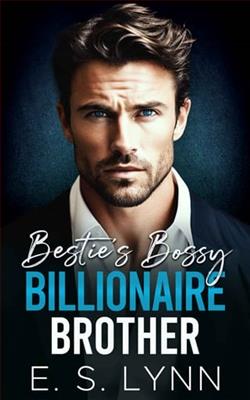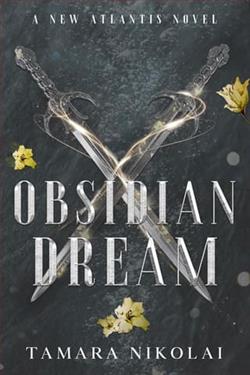Page 40 of The Last Stars in the Sky
For once, despite the wine, my mind feels clear. I’m not numb, I’m not panicked, I’m not cringing inwardly and cowering with fear. Of course, if I let myself think about any of it too much—the army in Corville, the fact that Daniel has been gone for an entire week, the state of the entireworld—I’ll go into a tailspin of terror.
But right now, I have a very clear, basic problem, and I’m determined to solve it. We need food. Better yet, we need asourceof food. And I’m going to find it. It feels like one of the word problems Mattie had in seventh grade—there are five people and each one eats two pounds of food a day…How much more do we need?
Not just a month’s worth, or even two months’ worth. Kerry, I suspect, would suggest another raid on someone’s house, maybe a supermarket or some warehouse the rest of the world miraculously hasn’t thought of. But we can’t keep doing that, even if it is a tempting short-term solution. We need to figure out a way to make our own food. To be completely self-sufficient, the way Daniel envisioned.
How?
My gaze moves around the darkened living room, the light from the fire casting long, dancing shadows across the floor and furniture. We need to hunt, I decide, no matter what I sneered to Daniel about how we couldn’t skin a deer. We’ll have to figure it out. And what about vegetables? The obvious solution is to somehow build a greenhouse. Will fruit and veg even grow in a greenhouse in December in Canada? Maybe not tomatoes or melons, but what about potatoes? Carrots? If we’re going to do that, we need to have started yesterday.
I take a steadying breath and then another sip of my wine. There’s no point being defeatist. We’ll start tomorrow.
It feels good to be proactive, to be problem-solving instead of mired down in the worry and the grief. At dinnertime, as I made turkey meatballs over the wood stove—made more of breadcrumbs than shredded turkey—Ruby came to stand by my side, pressing in as she stared down at the meatballs frying in as little oil as I could possibly spare.
“Bricco,” she said softly, and for a second, I was too startled to hear her speak to answer, and even after that, I was confused.
“Bricco? You mean Restaurant Bricco, back in West Hartford?”
She nodded, looking solemn. The penny finally dropped, with a soft, sorrowful patter of understanding. “You always ordered the meatballs.” She nodded again, and I put my arm around her, drawing her even closer. “You miss those meatballs.” In reply, she pressed her face into my shoulder.
“I miss Barb’s pizza,” Mattie said. She was standing in the doorway of the kitchen, one shoulder propped against the wall. “With Italian sausage and hot peppers, extra cheese.”
“I miss thedulce de lechepastries from Abby’s Bakery,” I said, deciding to enter into the game rather than redirect them, which had been my instinct. Caramel icing on a soft butter cookie—eye-wateringly sweet and wonderfully delicious. “And Dunkin’ Donuts coffee,” I added. “A large latte, extra sugar.”
“Dunkin’ Donuts strawberry lemonade,” Mattie fired back immediately, and then it really was a game, and we began naming foods and restaurants that we missed—Girl Scout cookies, microwave popcorn, Pop-Tarts, chocolate milk, Hershey’s Kisses. We smiled in memory, trying not to think about never having any of them ever again—but of course the knowledge was there, like a weight pressing down on us. None of us could get out from under it.
But that’s not how I want to be now, looking back. I want—I need—to look forward. To find solutions.
A movement from the corner of the room has me stiffening, and I lean forward, peering into the darkness. “Kerry?”
“No,” the voice wheezes back. “Darlene.”
She comes closer, into the light, shuffling slowly, clutching one of my mom’s crocheted afghans that she’s thrown over her shoulders. She eases herself into the wicker chair by the fire with a groan of satisfaction. “I couldn’t sleep.”
“I couldn’t, either.” I haven’t talked much to Darlene since she arrived, over a week ago now; she’s been sleeping or resting, and I’ve felt too busy, too frantic, to sit down with her and have a chat. But there’s nothing to keep us from having a conversation now; I think about why I invited Darlene and Kerry to come live here in the first place, and I wonder ifcan you show me how to huntis too random or demanding a question. Kerry might not know how to hunt, but I’m pretty sure Darlene does.
In any case, Darlene speaks first. “I’ve been thinking about your mum and dad,” she says, and I let out a muffled whimper because it’s not what I expected and after seeing my dad’s handwriting on that barrel in the root cellar—such a tiny thing—I’m feeling raw, when it comes to my parents. To the grief and loss I feel for them both, here, the place they loved most, where their absence is like an emptiness inside me, one I carry around like a weight.
“What…” I have to stop, swallow, start again. “What have you been thinking about, with them?”
Darlene lets out a gusty sigh as she gazes into the fire, drawing my mother’s afghan more closely around her shoulders. “Just how much they loved it here. It was part of them, you know? Right down in their very bones.”
“Yes.” I nod, my gaze on the fire. “I know.”
“I remember,” Darlene says slowly, “when your dad first got sick. He didn’t want to leave even though he had symptomsbecause he was afraid that he would never be able to come back. I think he knew it, really, and he still held on.”
“Yes.” My throat grows tight, and I have to swallow to ease it. Every time a doctor came into my dad’s hospital room when he was first diagnosed with cancer, he’d ask, a bit desperately, “When can I get back to the cottage?”
He did go back, that summer, for two poignant months. Then in October he got sick again, and by Christmas we were planning his funeral.
“He’s still here,” Darlene says softly, and I tense because I don’t think I can handle a he’s-an-angel-watching-over-me speech right now. I know Darlene has been going to the little country church down the road for her whole life, and my parents did too while they were up here.
“He’s not, though,” I say quietly. Gently, because I don’t want to hurt her feelings…but he’s really not.
“I don’t mean that he’s really here,” Darlene says, and my relief is tinged with a stupid little flash of disappointment. Did I think she was going to give me a little divine inspiration? “But you can feel him, can’t you? And your mum. All around you.” She nods to the chair next to her. “So many times your mum sat there, and I sat here with a cup of coffee…I remember after your dad died, she’d shake her head and tell me, ‘I still don’t know what to do without him.’” Her eyes turn glassy, and she brushes at a tear. “I didn’t know what to tell her. It’s not easy.” Darlene’s husband, I recall, died about fifteen years ago, a sudden heart attack. Kerry’s dad, I realize, and for some reason, this feels like a new thought, even though I recall she’d already mentioned him herself. “You’ve just got to have faith,” Darlene finishes, a pronouncement, and I let out a hollow laugh.
“Really, Darlene?” I ask, as nicely as I can. “I mean, I get it, and that’s a nice sentiment, but how can you have faith now,when the entire world has been destroyed? What is there left to have faithin?”
She gives me a smile that is tender with sympathy. “Sweetheart,that’swhen you’ve got to have faith most of all. It’s not much of a faith, is it, if life’s going fine and dandy?”















